Dog dental health is one of the most neglected health issues in dogs. Yet, neglected teeth can lead to other serious and often fatal diseases. Dr. Kathryn Primm, DVM, owner of Apple Brook Animal Hospital and “Animal Stuff You Wonder About” blog and Dr. Denise Petryk, Director of Veterinary Services at Trupanion, shared with us some of the issues that can happen if your dog’s teeth are not cared for properly.
#1 – Infection in Heart Valves
Dr. Primm: “Mouth bacteria can travel and settle on the heart valves. Bacterial endocarditis (infection of the interior of the heart) is a problem of its own and can also permanently damage cardiac tissue and lead to heart disease and even heart failure.”
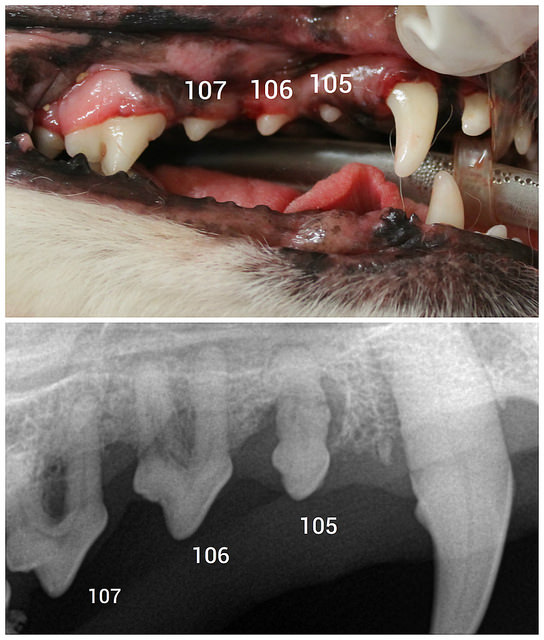
#2 – Liver abscesses
Dr. Primm: “It is the job of the liver to filter things, so when bacteria in the mouth is swallowed, infection can work its way to the liver fairly easily. Treatment is long and arduous. It’s also expensive and involves long-term treatment. This can be fatal.”
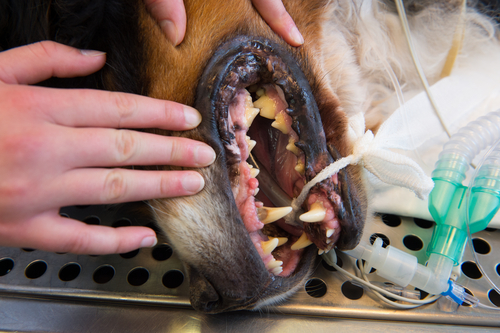
#3 – Sepsis
Dr. Primm: “Mouth bacteria can get into the blood stream and cause a sepsis (systemic infection that goes everywhere that the blood does–outside of the blood brain barrier). Septic pets can survive but it’s a struggle and they will die if not aggressively treated.”
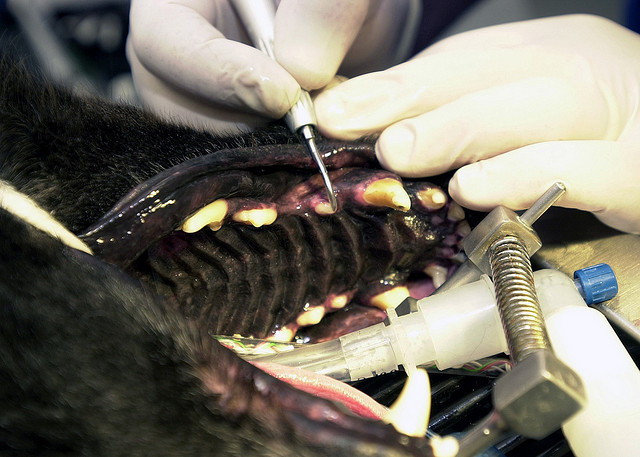
#4 – Poor Appetite
Dr. Petryk: “Bad teeth can be incredibly painful and lead to a decrease in appetite Older, thin pets are at a significant risk for additional weight loss and deterioration, which can lead to organ failure. Sometimes it can be difficult to determine whether organ failure is due to bad teeth or originates from something else.”
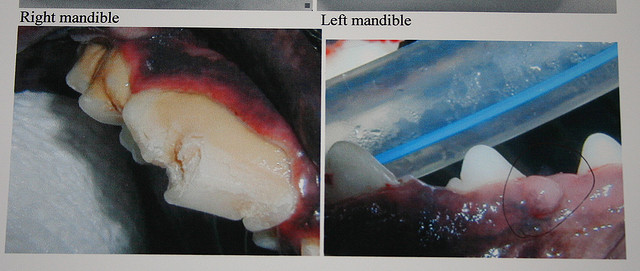
#5 – Osteomyelitis
Dr. Petryk: “Severe dental disease can lead to bone infections and a broken jaw. Bone infection (osteomyelitis) is not only painful, but it can also lead to the life threatening complication of a broken maxilla or mandible that might not heal. This is especially true in small dogs, who are most prone to dental disease. The bone under the teeth is susceptible to infection and becoming brittle. When this bone breaks, it is very hard for it to heal AND it is very difficult for veterinarians to fix some of these fractures.”
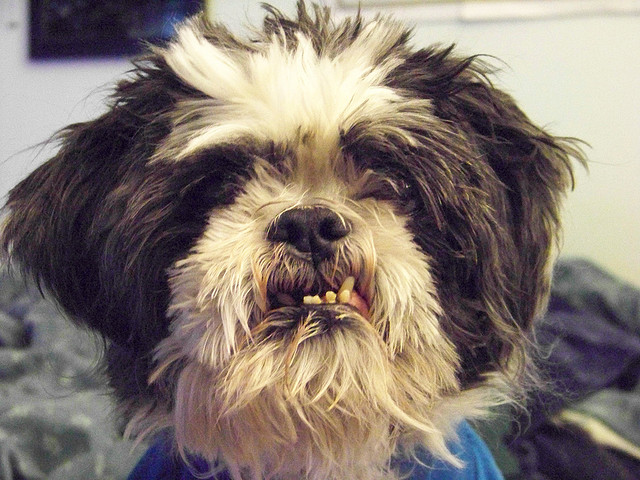
 Toledo, United States.
Toledo, United States.